Donald Trump: If FBI spied on my campaign, ‘bigger than Watergate!’
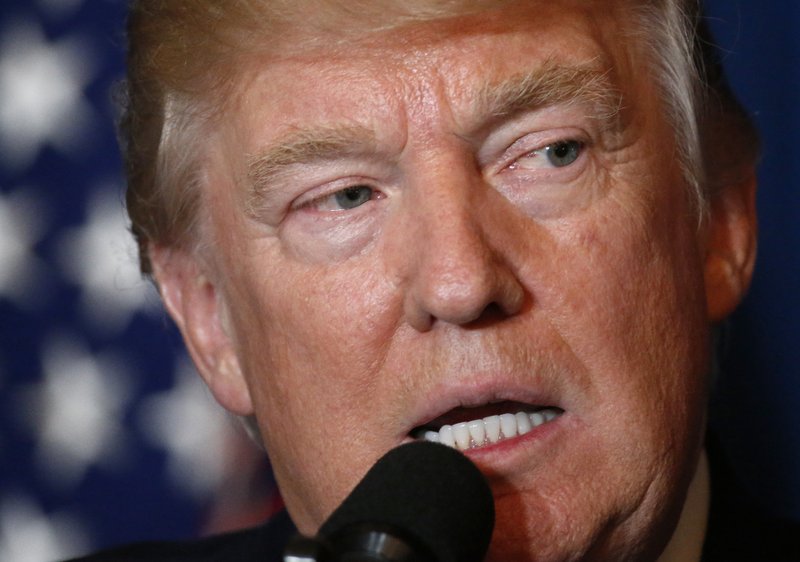
President Donald Trump lent credence Thursday to reports that FBI informants had infiltrated his presidential campaign, saying that “if so, this is bigger than Watergate!” Trump’s comments came on the anniversary of Robert Mueller’s appointment as special counsel to head the Justice Department probe into possible coordination between Russia and Trump campaign officials, an investigation Trump repeatedly has called a “witch hunt.” “Wow, word seems to be coming out that the Obama FBI ‘SPIED ON THE TRUMP CAMPAIGN WITH AN EMBEDDED INFORMANT,’” Trump said Thursday on Twitter. “Andrew McCarthy says, ‘There’s probably no doubt that they had at least one confidential informant in the campaign.’ If so, this is bigger than Watergate!” McCarthy, a contributing editor at the National Review, wrote an article published last week headlined “Did the FBI Have a Spy in the Trump Campaign?” The New York Times reported separately this week that at least one government informant met several times with Carter Page and George Papadopoulos, both former foreign policy advisers on Trump’s Republican campaign. The newspaper attributed the information to current and former FBI officials. The Watergate scandal in the early 1970s occurred following a break-in by five men at Democratic Party headquarters at the Watergate building in Washington and subsequent attempts by the administration of President Richard Nixon to hide its involvement. Nixon, a Republican, ultimately resigned from office as a result of the ensuing investigation. Meanwhile, Trump’s attorney Rudy Giuliani said that the president still wants to testify in the Russia probe. Speaking Thursday on “Fox and Friends,” the former New York mayor said Trump will only sit down with Mueller if “we feel there’s a way to shorten this thing.” He added that Trump remains eager to offer his “side of the case.” Giuliani has been urging Mueller’s team to wrap up the investigation now that the probe has reached the one-year mark. Giuliani’s team has been weighing whether to allow Trump to sit for an interview with Mueller. He said the legal team is “pretty comfortable, in the circumstances of this case, that they wouldn’t be able to subpoena him personally.” While the Supreme Court has never definitively ruled on the subject, it appears that a sitting president could be forced to testify. In 1974, justices held unanimously that a president could be compelled to comply with a subpoena for tapes and documents. If Trump were subpoenaed and did not want to testify, he could always invoke his constitutional right not to testify against himself and decline to answer questions. But that act would pose significant political risk. Giuliani also repeated that Mueller’s team has indicated it would not attempt to indict Trump, as he told The Associated Press on Friday. Justice Department legal opinions from 1973 and 2000 have suggested that a sitting president is immune from indictment and that criminal charges would undermine the commander in chief’s ability to do the job. Giuliani told Fox News Channel’s Laura Ingraham on Wednesday that Mueller “has all the facts to make a decision” after 12 months investigating Russian meddling in the election and possible collusion with Trump’s campaign. “Mueller should now bring this to a close,” said Giuliani. “It’s been a year. He’s gotten 1.4 million documents, he’s interviewed 28 witnesses. And he has nothing, which is why he wants to bring the president into an interview.” “It’s about time to say enough. We’ve tortured this president enough,” he added, describing the investigation as being “like a big weight” on the president’s back. So far, the special counsel’s office has charged 19 people — including four Trump campaign advisers — and three Russian companies. Trump’s former national security adviser, Michael Flynn, and his deputy campaign chairman, Rick Gates, have pleaded guilty and are now cooperating with the probe. Trump, however, has panned it as a “witch hunt” intended to discredit his presidency and has insisted that Russia had nothing to do with his winning campaign. Giuliani, who is working for the president pro bono, said Wednesday that the probe “is not good for the American people, and the special counsel’s office doesn’t seem to have that sort of understanding that they’re interfering with things that are much bigger than them.” Republished with the permission of the Associated Press.
Mo Brooks calls on Jeff Sessions to end Mueller investigation by July 5
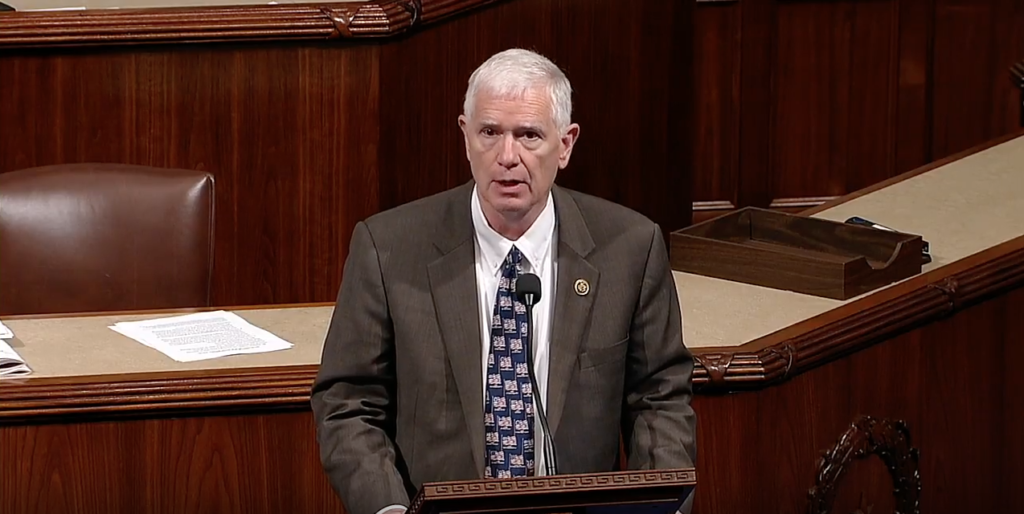
On Wednesday Alabama 5th District U.S. Rep. Mo Brooks announced in a House floor speech that he and 17 of his House colleagues sent a joint letter today to Attorney General Jeff Sessions urging immediate action to limit Special Counsel Robert Mueller. In his floor speech Brooks said the two years it’s taken is “more than enough time” for a “competent and thorough prosecutor” to do this job. “Two years is more than enough time for a competent and thorough prosecutor, backed up by the resources of the FBI and Department of Justice, to do this job. Mueller’s inability to finish the special counsel investigation in a timely manner is damaging America,” Brooks said. “For emphasis, the alleged Russian Interference and Trump Collusion investigations have taken on the character of an endless political persecution that not only harms Americans’ trust in the justice system but also severely damages and distracts from the ability of a duly elected president to fulfill his duties to the American people.” Brooks and his colleagues asked Sessions to end the investigate two years from the date it began — July 5. “My colleagues and I urge Attorney General Sessions to terminate the investigative phase of Mueller’s authority no later than July 5, 2018, two years after the start of the FBI investigation, and, in the meantime, limit Mueller’s investigation to the public basis for the appointment of a special counsel, alleged Russian election interference and alleged Trump Campaign collusion with Russian election interference,” Brooks detailed. “While public opinion must not dictate justice, it is important to emphasize that the expansion of Mueller’s work scope goes way beyond the alleged Russian Interference and Trump Collusion that was the public basis for the appointment of a special counsel.” Read Brooks’ full letter below: Watch Brooks’ floor speech below:
David Abroms: We are a nation of laws, if you’re innocent act like it
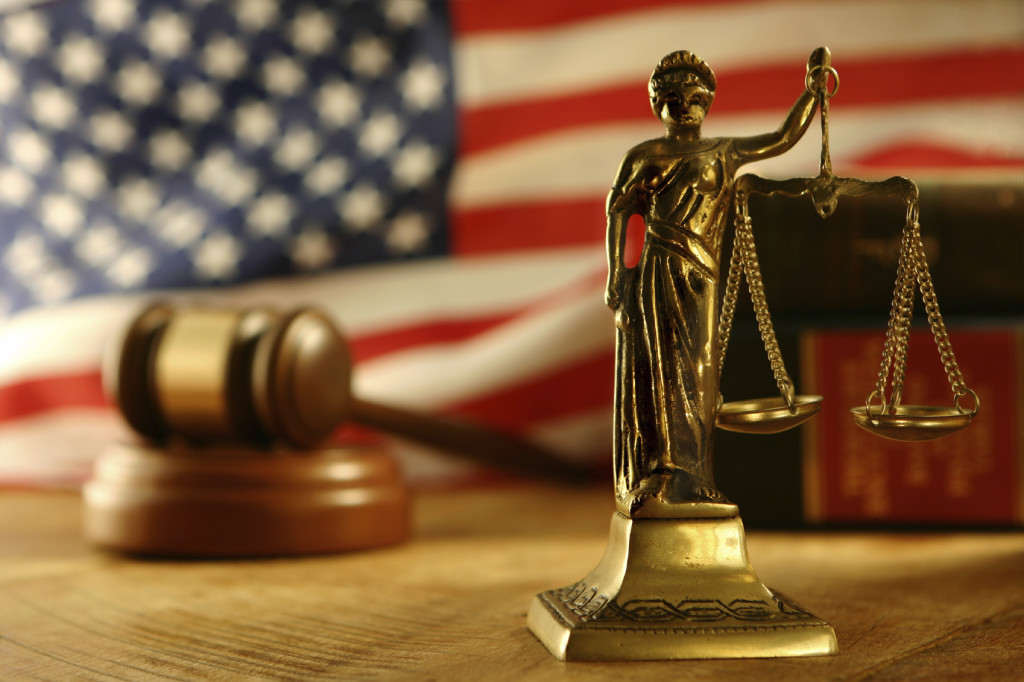
We are a nation of laws. And those laws are protected and enforced by institutions. We are blessed to live in a country where no man is above the law, which is the basis for our precious American experiment. There has been a lot of talk about the President firing people at the Justice Department, whether it is Attorney General Jeff Sessions, Deputy Attorney General Rod Rosenstein, or Special Counsel Robert S. Mueller III. These individuals are all responsible for upholding those laws; firing any of them would be a terrible mistake. According to recent Quinnipiac polling, just 22 percent of Republicans support President Trump removing Mueller, to say nothing of Sessions or Rosenstein — and there are a bevy of good reasons why. One is of course that Americans do believe we are, and should be, a nation of laws. And Republicans certainly tend to believe in the notion of law and order. But quite apart from that, let’s jump back to 2016, and remember why Trump won — not just the general election, but also the nomination, and Alabama’s primary in which he won by more than 20 points. Simply put, after eight years of the Obama administration, Alabamans were tired of weakness. They saw it in our foreign policy. They saw it in social policy, where they perceived an undermining of the core American value of working hard to get ahead. They saw it in selling out to foreign adversaries and nefarious corporate interests, because taking them on was simply too difficult, or unpleasant. They saw an America in decline that needed a tough guy, who could and would take all comers rather than have his staff and political appointees run interference to protect him from any criticism or scrutiny, in the White House. They voted for Trump not just because he wasn’t Hillary, but because he wasn’t a weakling. Herein lies the big problem, should Trump fire Mueller or Rosenstein or Sessions, and the reason why he probably will not: Trump knows that if he did, he would look incredibly weak and would put his presidency in jeopardy by attacking the very foundation of our republic: The rule of law. It is the rule of law and the independence of the Justice Department, in part, that has made America an exceptional country. It’s what separates us from banana republics, no matter the occupant of the Oval Office. Also, it would be politically foolish. Trump would also be giving liberals a big, fat, early 2020 Christmas gift, with a bow on top — and he knows it. Let’s not forget who really wants Trump to fire Mueller and Rosenstein and Sessions: Liberal Democrats, who would use it to fire up their base in November, retake the House and the Senate, immediately start impeachment proceedings, and probably propel a leftist firebrand like Elizabeth Warren or Bernie Sanders to the Democratic nomination and possibly the presidency. Firing any of these officials would amount to Trump inviting a true Socialist with a good shot at the White House to undertake a relatively easy presidential run. It is clear that any move to remove Sessions, Rosenstein or Mueller would lead to a constitutional crisis which would badly cripple the Trump presidency. It is crucial to remember that the Mueller investigation has already brought results. Twelve Russians were indicted for trying to influence our elections and at least four Americans have either been indicted or plead guilty to charges stemming from the investigation. Rep. Trey Gowdy provided some solid advice to the president, “If you are innocent, act like it.” Mueller and Rosenstein both have tremendous respect across the political spectrum and with Mueller continuing his investigation, the full scope of Russia’s interference with the election will be open for all of us to see which is important to our democratic process. It makes no sense politically, legally or morally for the President to interfere with this investigation. With a renewed relationship with our European allies and a potential for a breakthrough on the Korean Peninsula, the President has other monumental tasks ahead of him that are going to require his full attention for the betterment of the American people. I am grateful we live in a nation of laws. I am grateful that Attorney General Sessions knows that this is a country of laws, not men. The Mueller investigation must continue and I have every confidence that it will. President Trump said in a press conference recently that people have been saying for months he was going to fire the special counsel and yet he is still there. I believe that Trump knows that taking such dramatic action would, to quote Lindsey Graham, “be the beginning of the end of his Presidency.” I wholeheartedly agree but more than that I think it would make him look scared, weak and guilty. Let the investigation play out. Have faith in our wonderful constitutional republic and the institutions that keep it strong. Be proud to wear that American flag lapel pin and what it stands for. The truth will see the light of day. And as Rep. Gowdy said, if you are innocent, act like it. ••• David Abroms is a CPA, Businessman, founder of The American Remnant and an Alabama native.
Rudy Giuliani becomes aggressive new face of Donald Trump legal team
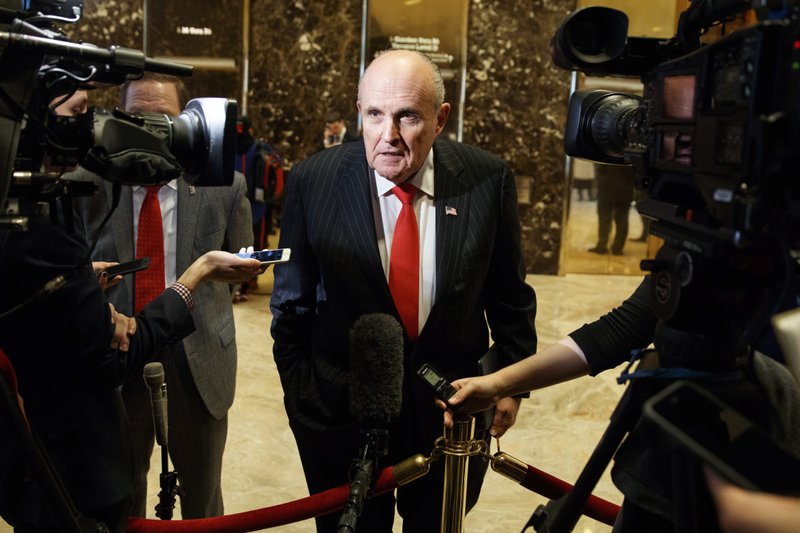
Rudy Giuliani, once known as “America’s Mayor” and hailed for helping unite a wounded city after Sept. 11, has become the aggressive face of President Donald Trump’s forceful new legal team. Giuliani, who is bonded with the president by a particular brand of New York bravado, has escalated Trump’s attacks on the Department of Justice, pushed for strict limits on special counsel Robert Mueller’s Russia probe and upended White House legal strategy. Giuliani and Trump cut out senior West Wing aides this week as they hashed out plans to combat what they see as an existential threat to the presidency. Giuliani’s bold offensive — on display in a series of cable news appearances in which he unleashed broadsides on the very law enforcement officers with whom he once worked — underscored the thoroughness of his transformation from moderate Republican mayor of a liberal city to fiery conservative hero. “Russian collusion is total fake news,” Giuliani, a former U.S. attorney, told Fox News. “Unfortunately, it has become the basis of the investigation. And Mueller owes us a report saying that Russia collusion means nothing, it didn’t happen. That means the whole investigation was totally unnecessary.” Giuliani has quickly become the dominant figure on the president’s reshuffled legal team as Trump stocks his political inner circle with familiar, TV-ready faces. The two have had several private conversations in recent days in which Giuliani fanned Trump’s anger with Mueller’s probe, according to two people familiar with their conversations who spoke on condition of anonymity because they weren’t authorized to publicly discuss them. Giuliani has warned Trump against sitting down for an interview with Mueller and has suggested that, at a minimum, the president place limits on his level of cooperation. Giuliani has warned Trump that he fears that the president’s longtime personal attorney, Michael Cohen, may flip on him. He has urged Trump to cut off communications with Cohen, according to a person close to Giuliani but not authorized to discuss the talks publicly. After an FBI raid on Cohen’s office and home, Giuliani also indicated that he wanted to change the discussion surrounding the $130,000 payment that Cohen made to porn actress Stormy Daniels to buy her silence about a sexual tryst with Trump. Giuliani did so with a jaw-dropping interview with Sean Hannity on Wednesday. Giuliani’s remarks — that Trump knew about the payment and had repaid Cohen for it — seemed to contradict Trump’s past statements. But he argued that it removed legal peril over a possible campaign finance violation, a claim some legal experts have questioned. Trump was pleased with Giuliani’s performance, according to a person familiar with his views but not authorized to speak publicly about private conversations. Over a pair of Fox News interviews, Giuliani also unleashed a series of provocative broadsides. He said Trump had fired James Comey last year because the FBI director wouldn’t publicly clear the president of wrongdoing in the Russia probe, a different explanation than the White House offered. He said he would defend the president’s daughter Ivanka Trump but suggested that her husband, Jared Kushner, was “disposable.” And he derided the agents who raided Cohen’s office as “stormtroopers,” a charge that attracted particular attention because it appeared to evoke Nazi soldiers in the context of the Manhattan U.S. attorney’s office, which had approved the raids and which Giuliani had once led. “It’s a different Rudy. He’s always been tough, but he changed when he started to have national ambitions,” said George Arzt, former press secretary to Democrat Ed Koch, one of Giuliani’s predecessors as New York City mayor. “And after he wedded himself to Trump, his popularity in his hometown disappeared completely.” Giuliani was elected mayor in 1993 on a pledge to slash the city’s sky-high crime rate. That year, 1,946 people were killed in the city. By 2001, Giuliani’s final year in office, the number had shrunk to 649. Giuliani was largely praised for the drop in crime but remained a polarizing figure. His no-holds-barred defense of the New York Police Department, often at the expense of minority communities, drew sharp criticism. A possible Senate run was abandoned after a cancer diagnosis. And after years of public battles and a very messy public separation from his second wife — which resulted in him moving out of Gracie Mansion, the mayor’s official residence — his poll numbers sank and many New Yorkers were eager for a change at City Hall. But then, one clear September day just a few months before he was to leave office, two planes flew into the World Trade Center. In the hours after the attacks, Giuliani became the face of the nation’s grief. His leadership — both inspiring and compassionate — over the following weeks earned him the nickname of “America’s Mayor.” But his relationship with the city would soon change again. Giuliani played a key role in the 2004 Republican National Convention that re-nominated President George W. Bush, a deeply unpopular figure in New York. And Giuliani shifted right on a number of issues — including gun control and public funding of abortions — during his failed presidential run four years later. Although his future electoral prospects vanished, Giuliani remained a conservative darling, a frequent guest on Fox News and a sought-after member of the political speaking circuit. He has known Trump for decades — his bomb-throwing rhetorical style can at times mirror that of the president — and he became an aggressive surrogate for the celebrity businessman from the early days of his insurgent presidential campaign. Giuliani had been widely expected to join Trump’s administration but was passed over for secretary of state, the position he badly wanted, and eventually was left without a Cabinet post. But the president kept in touch with Giuliani, sometimes calling to ask for advice, and frequently asked for the ex-mayor’s take on developments in the special counsel’s probe, according to three people familiar with the conversations but not authorized to publicly discuss private talks. In the weeks
Special counsel team has floated idea of subpoena for Donald Trump
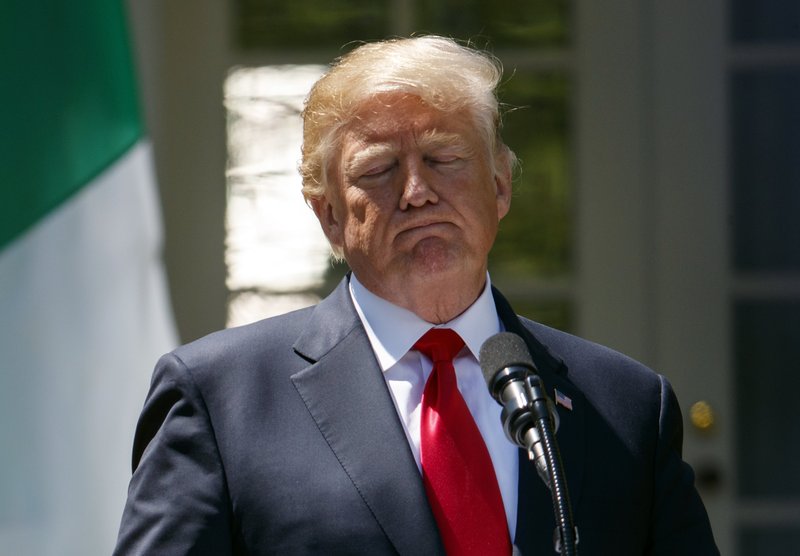
The special counsel leading the Russia investigation raised the prospect in March of issuing a grand jury subpoena for President Donald Trump, his former attorney said, confirming that investigators have floated the extraordinary idea of forcing a sitting president to testify under oath. Attorney John Dowd told The Associated Press on Tuesday that special counsel Robert Mueller’s team broached the subject during a meeting with Trump’s legal team while they were negotiating the terms of a possible interview with the president. It was not immediately clear in what context the possibility of a subpoena was raised or how serious Mueller’s prosecutors were about the move. Mueller is probing not only Russian election interference and possible coordination with Trump associates but possible obstruction of justice by Trump. Trump lashed out against the investigation in a familiar fashion Wednesday, saying on Twitter: “There was no Collusion (it is a Hoax) and there is no Obstruction of Justice (that is a setup & trap).” Even if Mueller’s team decided to subpoena Trump as part of the investigation, he could still fight it in court or refuse to answer questions by invoking his Fifth Amendment protection from self-incrimination. Dowd’s comments come more than a month after he resigned from the legal team, and they provide a new window into the nature of the Trump lawyers’ interactions with the special counsel, whom the president has increasingly tried to undermine through public attacks. On Tuesday, Trump said it was “disgraceful” that a list of proposed questions drafted in response to Mueller’s negotiations with the legal team was “leaked” to the news media. The about four dozen questions were compiled by Trump’s lawyers during negotiations with Mueller’s investigators earlier this year over the prospect of a presidential interview. A person familiar with the matter, who insisted on anonymity to discuss ongoing negotiations, told the AP that the president’s lawyers extrapolated the list of expected questions based off conversations with Mueller’s team about the topics prosecutors wanted to cover in a potential sit down with Trump. The questions reflected what the defense lawyers anticipated Trump would be asked, rather than verbatim queries that Mueller’s team provided, the person said. The Washington Post first reported that Mueller’s team raised the possibility of a subpoena for Trump. The New York Times first published the list of questions. According to the list, the questions range from Trump’s motivations for firing FBI Director James Comey a year ago to contacts Trump’s campaign had with Russians. Although Mueller’s team has indicated to Trump’s lawyers that he’s not considered a target, investigators remain interested in whether the president’s actions constitute obstruction of justice and want to interview him about several episodes in office. They have not yet made a decision about an interview. In his tweet, Trump said there were “no questions on Collusion” and, as he as many times before, called Mueller’s investigation a “Russian witch hunt.” He said collusion with the Russians “never existed.” In a second tweet, Trump said: “It would seem very hard to obstruct justice for a crime that never happened.” The questions do appear to indicate that Mueller is looking into possible collusion. Some touch on Russian meddling and whether the Trump campaign coordinated in any way with the Kremlin. In one question, Mueller asks what Trump knew about campaign staff, including his former campaign chairman Paul Manafort, reaching out to Moscow. Mueller has brought several charges against Manafort already, including money laundering and bank fraud. None of the charges relates to allegations of Russian election interference and possible coordination with Trump associates, and Manafort has denied having anything to do with such an effort. The questions also involve key moments from the early months of the Trump administration, including his reaction to Attorney General Jeff Sessions’ recusal from the Russia investigation and Trump’s firing of his national security adviser, Michael Flynn. One question asks whether there were any efforts to reach out to Flynn “about seeking immunity or possible pardon” ahead of his guilty plea last year. Flynn is now cooperating with Mueller. Republished with the permission of the Associated Press.
House panel officially clears Donald Trump in Russia probe
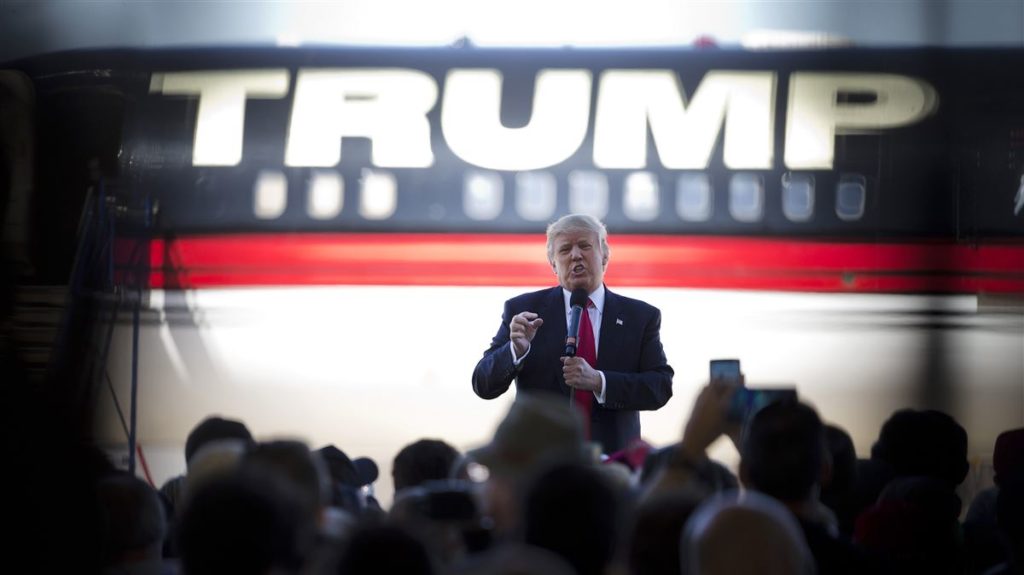
The Republican-led House intelligence committee on Friday officially declared the end of its Russia probe, saying in its final report that it found no evidence that the Trump campaign colluded with Russia in the 2016 presidential campaign. The report’s conclusion is fiercely opposed by committee Democrats, who say the committee did not interview enough witnesses or gather enough evidence to support its finding. The investigation began with bipartisan promise but ultimately succumbed to factional squabbling. Republicans had already announced the main findings last month. An investigation led by special counsel Robert Mueller is ongoing, as are probes led by the Senate intelligence and judiciary committees. The House panel did find that Russia sought to sow discord in the U.S. through cyberattacks and social media. Some portions of the public report are redacted for national security reasons. Republicans say they will pressure intelligence agencies to be able to release more information. Trump has repeatedly said there was “no collusion.” In a statement, Rep. Mike Conaway, R-Texas, who has been leading the investigation, said he was “extremely disappointed with the overzealous redactions” made by the intelligence agencies. He said many of the blacked out details include information already public such as witness names and previously declassified information. Conaway said the committee had pledged to be “as transparent as possible” with the report. “I don’t believe the information we’re releasing today meets that standard, which is why my team and I will continue to challenge the IC’s many unnecessary redactions with the hopes of releasing more of the report in the coming months,” he said. Republished with the permission of the Associated Press.
Donald Trump says of James Comey: ‘He’s either very sick or very dumb’
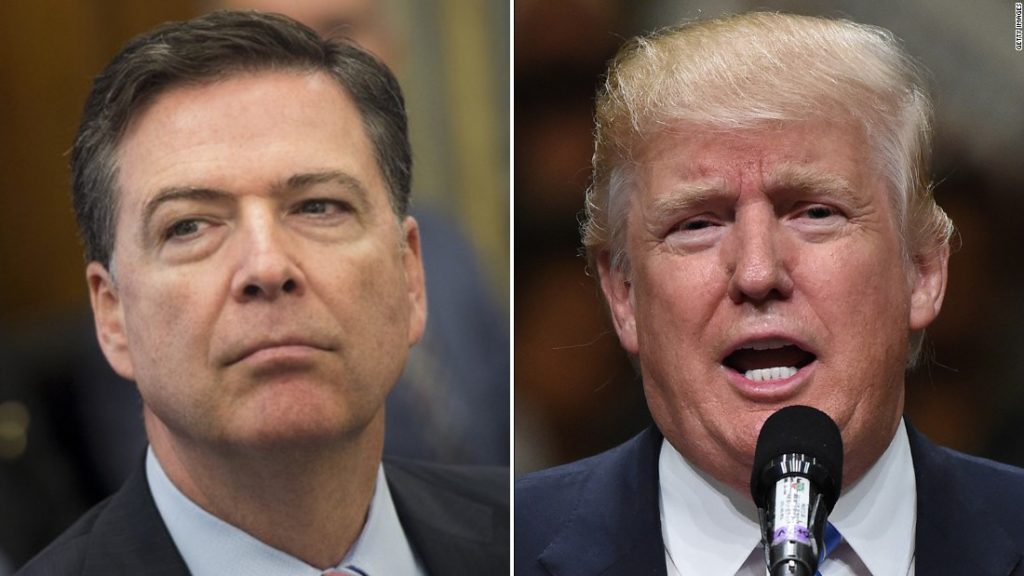
President Donald Trump insists he “won’t be involved” in any attempt to interfere with the investigation into Russian election meddling — unless he changes his mind. Trump also is renewing his attacks on James Comey, the FBI director he fired last year, accusing him of lying about Trump’s trip to Moscow in 2013 that has received fresh scrutiny. Early Friday, Trump accused Comey in a tweet of leaking classified information. “He’s either very sick or very dumb,” Trump tweeted. On Thursday, the GOP-led Senate Judiciary Committee approved a measure that would safeguard special counsel Robert Mueller from being fired. The move came shortly after Trump, in a television interview, blasted the Justice Department, which oversees the special counsel’s investigation. “I am very disappointed in my Justice Department. But because of the fact that it’s going on, and I think you’ll understand this, I have decided that I won’t be involved,” the president said in a telephone interview with “Fox & Friends.” But then he added: “I may change my mind at some point, because what’s going on is a disgrace.” The Mueller legislation approved by the Senate panel may be largely symbolic, since Majority Leader Mitch McConnell has said he won’t bring it up for a full Senate vote. But it shows there are limits to Republican support for Trump when it comes to the president’s attacks on the special counsel’s probe. Four Republicans joined Democrats in a 14-7 committee vote to approve the measure. Nearly all GOP senators say Trump shouldn’t fire Mueller. And Republicans who support the legislation say it’s necessary to guard against presidential interference by giving Congress more oversight power. “While my constitutional concerns remain, I believe this bill should be considered by the full Senate,” said Sen. Chuck Grassley, R-Iowa, chairman of the committee, adding to pressure on McConnell. Trump has increased his criticism of the Russia investigation since the FBI’s raids on the office and hotel room being used by Michael Cohen, a Trump personal attorney who is under federal criminal investigation in New York for unspecified business dealings. Trump again called the investigation “a witch hunt” and insisted there was “no collusion” with Russia. Much of his vitriol in his TV remarks was directed at Comey. He laced into the former FBI director as “a leaker” and “a liar.” He disputed Comey’s claim that Trump told him he did not spend the night in Moscow during his 2013 trip to attend the Miss Universe pageant. “He said I didn’t stay there a night. Of course I stayed there,” Trump said. “I stayed there a very short period of time but of course I stayed.” Comey last year created a series of contemporaneous memos — some classified, some not — to document his interactions with Trump. He wrote in the memos that Trump repeatedly brought up allegations contained in an unverified document that explored ties between Trump’s orbit and Russia. Among the most salacious details was a report that Trump consorted with prostitutes overnight on that trip, a claim Trump has denied. Comey wrote in the memos that Trump told him that he’d never stayed the night in Moscow. Flight records and social media posts from that week indicate that Trump did spend at least one night in Russia. Comey said on a CNN program that aired Wednesday — watched by Trump — that he was always concerned when someone lied to the FBI, particularly if it was about something that an agent never asked about, as he said was the case with Trump. “It tends to reflect consciousness of guilt as we would say in law enforcement,” Comey said. He added: “If they bring things up you didn’t ask about, and if they bring it up and make a false statement about it, that’s — it’s not definitive, but it certainly makes you very concerned about what might be going on there.” Trump denied having that conversation with Comey. “You look at the corruption at the top of the FBI. It’s a disgrace,” Trump said. “And our Justice Department, which I try and stay away from, but at some point I won’t.” He also suggested Comey leaked classified information in the memos. Comey has denied that allegation. He has acknowledged that the Justice Department’s inspector general, who has been investigating FBI actions during the Hillary Clinton email probe, was examining whether Comey complied with FBI policy in how he produced and stored the memos. He said that inquiry is not looking at whether he mishandled classified information, “because that’s frivolous.” “The bottom line is, I see no credible claim by any serious person that that violated the law,” he said on CNN. A conscious effort by Trump to mislead the FBI director could lend weight to the allegation, contained in the private research dossier compiled by a former British spy in 2016, that Trump engaged in compromising activity during the trip that exposed him to potential Russian blackmail. The Mueller probe has already led to the indictments of several former Trump campaign officials, including onetime campaign chairman Paul Manafort, who is charged with engaging in conspiracy and money laundering. Trump, who recently added former New York City Mayor Rudy Giuliani to his legal team, has not committed to sitting for an interview with Mueller’s investigators. Republished with the permission of the Associated Press.
In James Comey memos, Donald Trump talks of jailed journalists and ‘hookers’
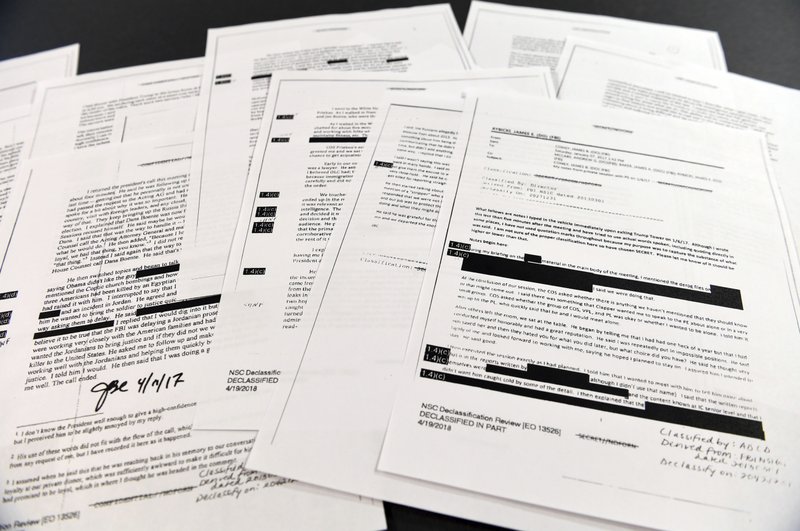
In a series of startlingly candid conversations, President Donald Trump told former FBI Director James Comey that he had serious concerns about the judgment of a top adviser, asked about the possibility of jailing journalists and described a boast from Vladimir Putin about Russian prostitutes, according to Comey’s notes of the talks obtained by The Associated Press on Thursday night. The 15 pages of documents contain new details about a series of interactions with Trump that Comey found so unnerving that he chose to document them in writing. Those seven encounters in the weeks and months before Comey’s May 2017 firing include a Trump Tower discussion about allegations involving Trump and prostitutes in Moscow; a White House dinner at which Comey says Trump asked him for his loyalty; and a private Oval Office discussion where the ex-FBI head says the president asked him to end an investigation into Michael Flynn, the former White House national security adviser. The documents had been eagerly anticipated since their existence was first revealed last year, especially since Comey’s interactions with Trump are a critical part of special counsel Robert Mueller’s investigation into whether the president sought to obstruct justice. Late Thursday night, Trump tweeted that the memos “show clearly that there was NO COLLUSION and NO OBSTRUCTION.” In a Friday morning tweet, Trump lamented that Flynn’s life has been “totally destroyed” after he pleaded guilty to lying to the FBI about his contacts with the Russian ambassador, “while Shadey (sic) James Comey can Leak and Lie and make lots of money from a third rate book (that should never have been written).” He added: “Is that really the way life in America is supposed to work? I don’t think so!” The president also has accused Comey of leaking classified information. The memos obtained by the AP were unclassified, though some portions were blacked out as classified. Details from Comey’s memos reported in news stories last year appear to come from the unclassified portions. In explaining the purpose of creating the memos, which have been provided to Mueller, Comey has said he “knew there might come a day when I would need a record of what had happened” to defend not only himself but the FBI as well. The memos cover the first three months of the Trump administration, a period of upheaval marked by staff turnover, a cascade of damaging headlines and revelations of an FBI investigation into potential ties between the Trump campaign and Russia. The documents reflect Trump’s uneasiness about that investigation, though not always in ways that Comey seemed to anticipate. In a February 2017 conversation, for instance, Trump told Comey how Putin told him, “we have some of the most beautiful hookers in the world” even as the president adamantly, and repeatedly, distanced himself from a salacious allegation concerning him and prostitutes in Moscow, according to one memo. In another memo, Comey recounts how Trump at a private White House dinner pointed his fingers at his head and complained that Flynn, his embattled national security adviser, “has serious judgment issues.” The president blamed Flynn for failing to alert him promptly to a congratulatory call from a world leader, causing a delay for Trump in returning a message to an official whose name is redacted in the documents. “I did not comment at any point during this topic and there was no mention or acknowledgment of any FBI interest in or contact with General Flynn,” Comey wrote. By that point, the FBI had already interviewed Flynn about his contacts with the Russian ambassador, Sergey Kislyak, and the Justice Department had already warned White House officials that they were concerned Flynn was vulnerable to blackmail. Flynn was fired Feb. 13, 2017, after White House officials said he had misled them about his Russian contacts during the transition period by saying that he had not discussed sanctions. The following day, according to a separate memo, Comey says Trump cleared the Oval Office of other officials, encouraged him to let go of the investigation into Flynn and called him a good guy. Flynn pleaded guilty to lying to the FBI and is now cooperating with Mueller’s investigation. The memos reveal that days before Flynn’s firing, then-White House chief of staff Reince Priebus asked Comey if Flynn’s communications were being monitored under a secret surveillance warrant. “Do you have a FISA order on Mike Flynn?” Priebus asked Comey, according to the memos, referring to an order under the Foreign Intelligence Surveillance Act. Comey said he “paused for a few seconds and then said that I would answer here, but that this illustrated the kind of question that had to be asked and answered through established channels.” Comey’s response is redacted on the unclassified memos. The memos also show Trump’s continued distress at a dossier of allegations — compiled by a former British spy whose work was funded by the Democratic National Committee and the Clinton campaign — examining potential ties between him and his aides and the Kremlin. Comey writes how Trump repeatedly denied to him having been involved in an encounter with Russian prostitutes in a Moscow hotel. “The President said ‘the hookers thing’ is nonsense,” Comey writes, noting that Trump then related the conversation with Putin about the “most beautiful hookers.” Comey says Trump did not say when Putin had made the comment. The documents also include the president’s musings about pursuing leakers and imprisoning journalists. They also provide insight into Comey’s personal and professional opinions. He judges the administration’s travel ban to be legally valid, and he takes a swipe at former Attorney General Loretta Lynch, calling her predecessor, Eric Holder, “smarter and more sophisticated and smoother.” The memos were provided to Congress earlier Thursday as House Republicans escalated criticism of the Justice Department, threatening to subpoena the documents and questioning officials. In a letter sent to three Republican House committee chairmen Thursday evening, Assistant Attorney General Stephen Boyd wrote that the department was sending a classified version of the memos
Anxiety grows for Donald Trump after raid on his personal lawyer

President Donald Trump and his allies have hit a new level of anxiety after the raid on his personal attorney’s office, fearful of deeper exposure for Trump, his inner circle and his adult children — and more than concerned that they don’t know exactly what is in those records and electronic devices seized last week. There is also some worry that Michael Cohen, the self-described legal fixer who helped make bad stories go away and took a leading role in Trump Organization projects in foreign outposts, may strike a deal with prosecutors out of concern about his own prospects. “I think it’s a huge minefield for Donald Trump and the Trump Organization,” said trial attorney Joseph Cammarata, who represented Paula Jones in her sexual harassment suit against President Bill Clinton. “I think this is on its own track and this train is coming down the track with brute force.” The wild legal show continued to play out Monday, at a court hearing in New York before a federal judge who is considering what to do with the material that the FBI seized from Cohen. The scene was punctuated by dramatic entrances and revelations. Stormy Daniels — the porn actress who alleged she had a sexual affair with the president — made an appearance, stumbling on her high heels as she was swarmed by press. Cohen was forced to reveal that another one of his clients is Fox News host Sean Hannity, a high-profile confidant of the president. Trump left the White House for Florida, for a two-day summit with Japanese Prime Minister Shinzo Abe at the president’s Mar-a-Lago estate. Advisers are hoping the meeting will draw attention from the legal tempest in Washington and New York. On the trip south, White House spokeswoman Sarah Huckabee Sanders sought to put distance between Trump and Cohen, saying: “I believe they’ve still got some ongoing things, but the president has a large number of attorneys, as you know.” The federal raid, carried out a week ago in New York City, sought bank records, information on Cohen’s dealing in the taxi industry, Cohen’s communications with the Trump campaign and information on payments he made in 2016 to former Playboy model Karen McDougal and to Daniels, both of whom allege relationships with Trump. The court proceedings Monday dealt with who gets to look at Cohen’s seized documents and devices before they are turned over to prosecutors. Though Cohen once said he “would take a bullet” for Trump, he is aware of the possible outcome — including potential prison time — and has expressed worry about his family, said a person who has spoken to the lawyer in recent days but is not authorized to discuss private conversations. Cohen has not been charged with anything. Trump’s moods have grown darker in recent days, as he lashes out at the “overreach” of the raid. Further angering the president is that the raid was triggered in part by a referral from special counsel Robert Mueller, who is looking into Russian interference in the 2016 U.S. presidential election. The raid was authorized by the U.S. Attorney for the Southern District of New York. On Twitter Sunday, Trump said that all lawyers are now “deflated and concerned” by the FBI raid on Cohen, adding that “Attorney Client privilege is now a thing of the past.” Trump has also taken to downplaying Cohen’s role. The president also inveighed further against former FBI Director James Comey, who said Monday morning that Trump was morally unfit to be president. That was a few hours after Comey said the same and worse in a highly promoted ABC interview. Many in the White House view the aftershocks of the Cohen raid as potentially more threatening than Mueller’s Russia probe, fearful of what skeletons may be in the lawyer’s closets, according to five officials and outside allies who all spoke on the condition of anonymity to discuss private conversations. “I agree with the consensus forming that it’s very dangerous for the president, probably the most serious thing yet,” said Sol Wisenberg, a defense attorney who was a deputy independent counsel during the Starr special counsel investigation into Clinton. “Even if you shut Mueller down some way, how do you shut down the Southern District (federal court)?” Trump’s anger at the probe has intensified, with him musing publicly about firing Mueller and the man who authorized the probe, Deputy Attorney General Rod Rosenstein. Those around Trump have hoped that this week’s visit to Mar-a-Lago, where he is generally happier, along with the tightly scheduled summit with Abe, would somewhat distract him from Cohen and from Comey’s ongoing publicity tour. But White House aides have also expressed worry that they can control Trump less at his palatial Florida estate, where he is known to seek out counsel from club members and get revved up by their at-times provocative advice. One recent presidential dinner guest was Hannity, a longtime Trump ally whose connection to Cohen shed more light on the attorney who was more than just a lawyer for Trump. Cohen has long been a key power center in the Trump Organization and a fixture along the edges of Trump’s nascent political life. In Cohen’s own estimation, he is Trump’s Ray Donovan, the bruising television character who takes whatever steps are needed to fix problems for the tycoon he serves. He has regularly threatened lawsuits against those who pose a challenge to Trump. He has berated reporters for writing unflattering words about his boss. He has worked with tabloids, including the National Enquirer, to kill unfavorable stories about Trump. He has said he used a home-equity loan to finance a $130,000 payment to Daniels in the final days of the 2016 campaign and did so without Trump’s knowledge. The president has consistently denied a relationship with Daniels, who claims the two had sex not long after first lady Melania Trump gave birth to the couple’s son Barron. He has also pushed back against other claims from women. A
Mike Pompeo defends Donald Trump on Russia, won’t talk about Robert Mueller
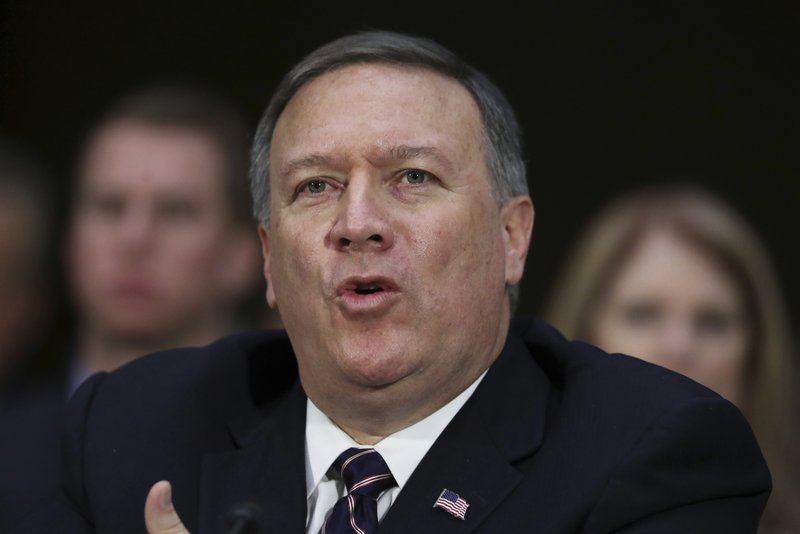
Mike Pompeo, the CIA director nominated to be secretary of state, defended the Trump administration’s efforts to push back on aggression from Russia at his confirmation hearing Thursday while suggesting more sanctions on Moscow are still needed. Yet he dodged repeatedly when Democrats tried to pin him down on President Donald Trump’s handling of the special investigation into Russian interference in the 2016 election. Pompeo confirmed for the first time publicly that he’s been interviewed by special counsel Robert Mueller, who is investigating potential ties between Russia and Trump’s presidential campaign and possible obstruction of justice issues. But he wouldn’t answer questions about the contents of the interview, arguing it would be improper since, as CIA director in charge of overseas intelligence gathering, he has been a “participant” in Mueller’s probe. “I cooperated,” Pompeo said. Under questioning, he said he would be unlikely to resign as secretary of state if Trump were to fire Mueller. Lawmakers are concerned the president may seek Mueller’s ouster to try to shut down the investigation, and the White House has said it believes Trump does have the authority to fire him if desired. “My instincts tell me no,” Pompeo said. “My instincts tell me my obligation to continue to serve as America’s senior diplomat will be more important in times of domestic political turmoil.” As for the prospect of leading the State Department, Pompeo pledged to make the department as central to national security decisions as the intelligence agency he now heads. Throughout the hearing, he drew a sharp contrast with his ousted predecessor, Rex Tillerson. He lamented the “demoralizing” vacancies at the top echelons of the department during Tillerson’s tenure and said he planned to fill those vacancies, asking the Senate’s help to get nominees confirmed. He cast his close connection to Trump as an advantage that would help him restore the significance of the department. “My relationship with President Trump is due to one thing: We’ve demonstrated value to him at the CIA. So, in turn, he has come to rely on us,” Pompeo said. “I intend to ensure that the Department of State will be just as central to the president’s policies and the national security of the United States.” His remarks before the Senate Foreign Relations Committee were the first chance for lawmakers and the public to hear directly from the former Kansas congressman about his approach to diplomacy and the role of the State Department, should he be confirmed. Pompeo’s views on global issues are well known — he was questioned extensively by senators for his confirmation to run the CIA — but Democratic senators have raised questions about his fitness to be top diplomat, given his hawkish views and past comments about minorities. Sen. Cory Booker, D-N.J., took Pompeo to task over for saying previously that Muslims have a special obligation to denounce extremism and for his longstanding position that gays should not be able to marry. “I continue to hold that view,” Pompeo said of gay marriage, though he declined repeatedly to answer whether he believes gay sex is a “perversion.” Instead, Pompeo responded to the criticism by saying repeatedly that his record at the CIA and elsewhere proves he treats everyone equally and with respect, regardless of religion, gender or sexual orientation. He sought to pre-empt concerns about Trump’s apparent unwillingness to challenge Russian President Vladimir Putin directly. He said a long list of punitive actions taken under Trump show the U.S. takes the threat from Russia seriously, adding that “we need to push back in each place we confront them,” including the economic and cyber arenas. “Each of those tools that Vladimir Putin is using, we need to do our best to make sure he doesn’t succeed,” Pompeo said. An avowed opponent of the Iran nuclear deal, Pompeo said he’d work immediately if confirmed to “fix” the agreement that Trump has threatened to abandon if it’s not strengthened. Pompeo wouldn’t say explicitly if he’d advocate a withdrawal if there’s no fix by Trump’s May 12 deadline, suggesting there could be an extension if significant progress was being made by then. Still, he affirmed that he won’t support staying in over the long term unless more restrictions are placed on Tehran. “If there’s no chance that we can fix it, I will recommend to the president that we work with our allies to achieve a better outcome and to achieve a better deal,” Pompeo said. Still, he acknowledged that Iran, technically speaking, is not violating the terms of the 2015 accord between the U.S., Iran and other world powers, adding: “I have seen no evidence that they are not in compliance.” Since being nominated last month, Pompeo has spent much of his time at the State Department immersing himself in briefing books and undergoing mock hearings and prep meetings on key issues like Iran, Syria and North Korea, as well as the inner workings of the department, a person close to Pompeo said. He’s also spoken to all eight living former secretaries — including Hillary Clinton, whom he famously criticized over the 2012 attack on U.S. facilities in Benghazi, Libya. Pompeo, who was confirmed for the CIA job by a 66-32 vote, developed a reputation for being more outwardly political than many past directors of the traditionally apolitical agency. He developed a visibly close relationship with the president, traveling to the White House on most days to deliver the classified President’s Daily Brief in person rather than leaving the task to other intelligence officials. Often Trump would have the CIA director stay in the West Wing after the briefing to accompany him to other meetings. Republished with the permission of the Associated Press.
Jeff Sessions: No new special counsel yet for Republican concerns
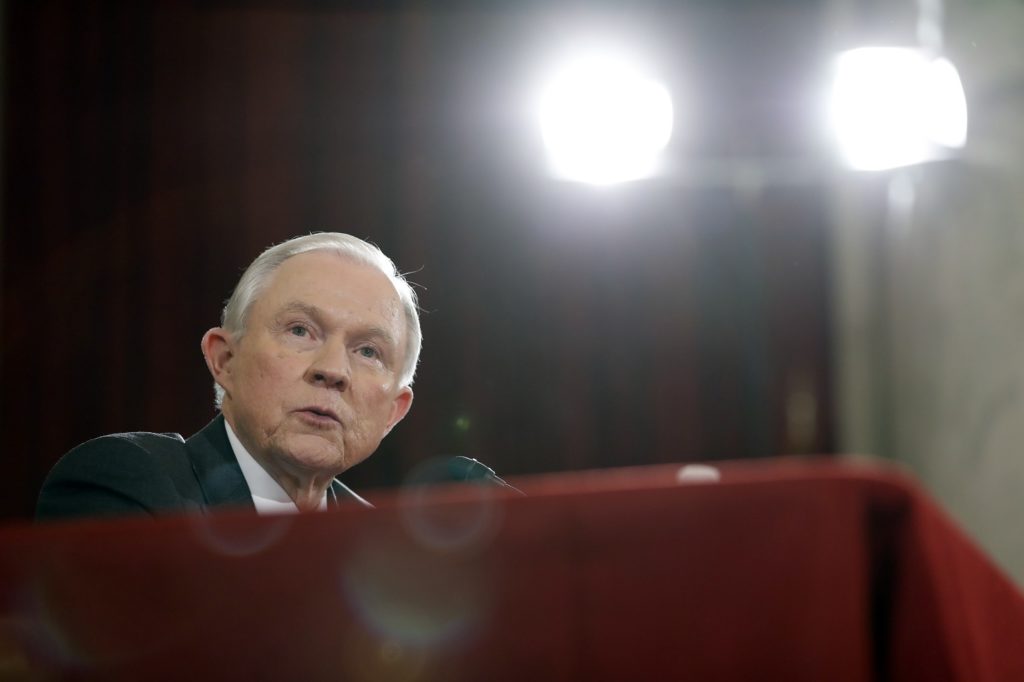
Attorney General Jeff Sessions said Thursday he won’t immediately appoint a new special counsel to investigate a number of Republican grievances involving the FBI and Justice Department, despite mounting pressure from members of his own party. Sessions, in a letter to three Republican committee leaders, reiterated that he had directed a senior federal prosecutor, Utah’s U.S. attorney John W. Huber, to evaluate “certain issues,” including whether such an appointment is necessary. Huber’s review is ongoing, and Sessions said he gets regular updates. The letter is likely to unnerve Republican lawmakers, who have called for multiple special counsels to study allegations of misconduct in some of the FBI’s highest profile, most politically charged investigations. Most recently, they’ve demanded a special counsel to take a broad look at whether Justice Department or FBI employees were biased during their now-closed probe of Hillary Clinton’s use of a private email server, and as they began investigating Trump campaign ties to Russian meddling in the 2016 election. In a statement released Thursday night, House Judiciary Chairman Robert Goodlatte and House Oversight and Government Reform Chairman Trey Gowdy said they were “encouraged” that Huber was tapped to investigate the issues. “While we continue to believe the appointment of a second special counsel is necessary, this is a step in the right direction,” they said. Democrats say the allegations are an effort to distract from and undermine the separate work of special counsel Robert Mueller as his team’s Russia investigation intensifies. Sessions’ letter comes a day after the Justice Department’s inspector general announced that, at Sessions’ urging, it would review whether law enforcement officials abused their surveillance powers in seeking permission to monitor the communications of former Trump campaign adviser Carter Page. Sessions’ referral of the allegations to the inspector general enraged President Donald Trump, who said Sessions should have ordered is own investigation. But in his letter to lawmakers, Sessions reminded that the inspector general’s office can and often does refer matters for prosecution. And he said the Justice Department has proven capable of handling “high-profile, resource-intensive matters” without the rare appointment of a special counsel. Huber, an Obama administration holdover re-nominated to serve as Utah’s top federal prosecutor, will conduct a “full, complete and objective evaluation” of Republican concerns and submit recommendations, Sessions said. Republished with permission of the Associated Press.
Mike Rogers: What is the real Russian influence?
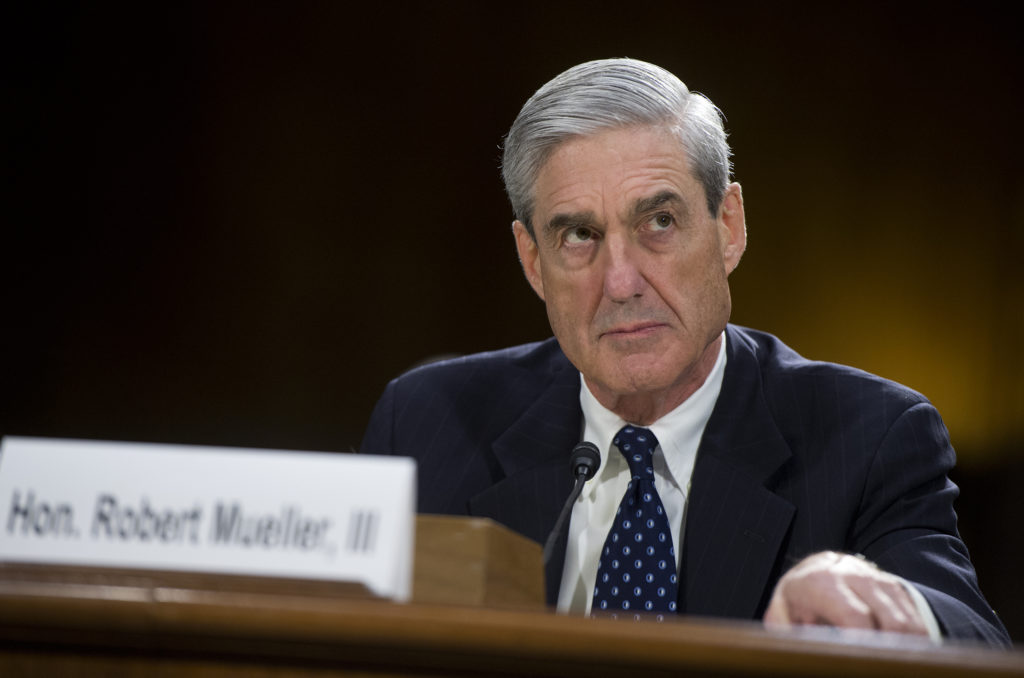
As most folks across East Alabama may have seen recently in the news, Robert Mueller, the special counsel appointed to investigate the alleged Russian meddling in the 2016 presidential campaign, has been in the spotlight. Mr. Mueller has a very important job to do and he must do it fairly and in a nonpartisan manner. Details have come out in the past few weeks about Hillary Clinton’s campaign and the Democrat National Committee (DNC) role in funding a dossier on then-presidential candidate Donald Trump. The dossier was full of information that was unverified and painted Mr. Trump in a negative light. The dossier was put together by a man named Christopher Steele, a foreign intelligence agent, and is sometimes referred to as the Steele Dossier. The DNC and Clinton campaign hired a company called Fusion GPS, which has very deep ties to Russia, to conduct some of the research. We now know that some of the information used in the dossier may have been the basis of the Obama Administration’s decision to begin spying on members of the Trump campaign – spying on Americans. This should raise more than just eyebrows. It is more than troubling. The liberal media elite is obsessed with Russian meddling and President Trump, but there are real questions about Secretary Clinton and the DNC’s involvement with Russia during the 2016 presidential election. I believe that there should also be an investigation into then-Secretary Clinton’s involvement in the approval of the Uranium One deal and donations made to the Clinton Foundation. Robert Mueller, or another appropriate special counsel, needs to dig deep in to the details of this matter that could be the real heart of Russian influence. The American people deserve to know the truth and learn more beyond what the liberal media elite and the Democrat spin cycle chooses to believe and to report on. I want to hear from you on this or any issue. ••• Mike Rogers is a member of U.S. Congress representing Alabama’s 3rd Congressional District. Sign-up for his e-Newsletter by visiting www.mikerogers.house.gov. To stay up to date, you can also like him on Facebook at Congressman Mike D. Rogers, follow him on Twitter, Pinterest and Instagram at RepMikeRogersAL, on Tumblr at www.repmikerogersal.tumblr.com.


